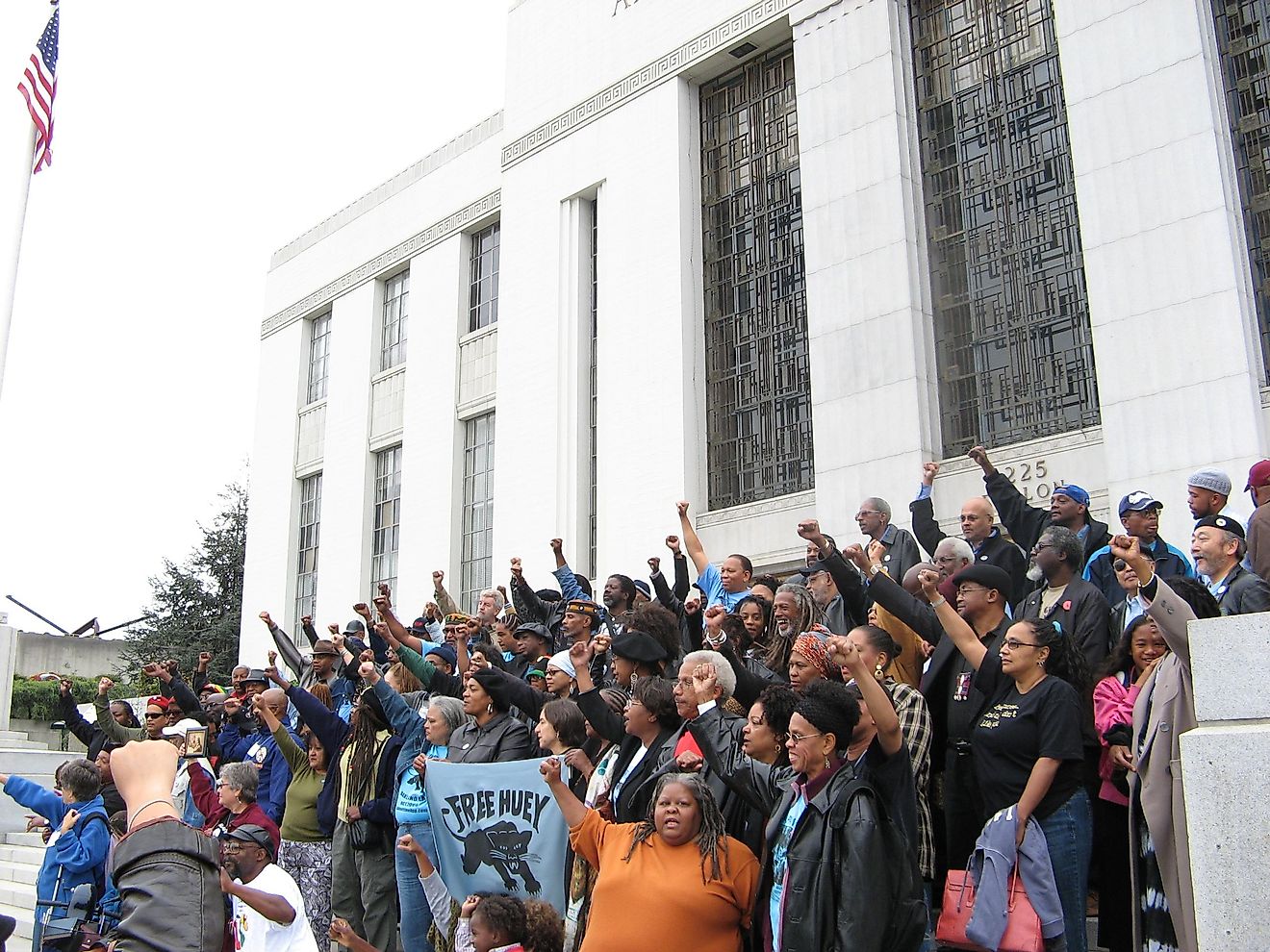The Black Panther Party

5. Overview of Beliefs
A revolutionary black nationalist/socialist organization, the Black Panther Party sought to stop the US government’s oppression of African Americans. Members wanted to bring revolutionary change to the American society based on the teachings of Malcolm X and Mao Tse-tung. They believed equality across social, political, and economic lines could only be achieved through the overthrow of the current system and the implementation of socialism. The Party published a ten-point program on May 15, 1967, which included a call for freedom for the Black community, full employment, fair housing, education, military exemption for Black men, and an end to police brutality and the murder of black people.
4. Organizational History
The Party was founded on October 15, 1966, in Oakland California by Huey Newton and Bobby Seale under the original name of Black Panther Party for Self-Defense. The initial six Black Panthers were Elbert "Big Man" Howard; Huey P. Newton, Sherman Forte, Bobby Seale, Reggie Forte and Little Bobby Hutton. They slowly gained new members as they went about “policing the police” in Oakland. Their members soared, and Party chapters were founded across the country after they gained media attention for escorting Malcolm X’s widow to the airport and for their armed protest at the California capital building. The first issue of the Party’s newspaper, The Black Panther, was published on April 25, 1967, and disseminated across the country. In 1968 Mao’s Red Book became required reading for members and was sold to buy guns for Party members. Huey Newton was the recognized leader of the Black Panthers until its dissolution in the early 1980s.
3. Contributions and Achievements
The Black Panther Party was among the first groups to call for militant struggle against ethnic minority and working class oppression. In 1969 the Panthers opened a Free Breakfast for School Children Program at St Augustine’s Church in Oakland, California. Similar kitchens were opened across the US, and thousands of children were fed daily. In Chicago, Panther leader Fred Hampton helped to open a free medical center and initiated an in-home health services program.
2. Challenges and Controversies
Along with their admirable social work, Panthers killed a number of their opponents. They especially targeted police. In April 1968, one of the original six, Bobby Hutton, was shot dead by police in Oakland. The Black Panthers became the “greatest threat to the internal security of the country,” according to J. Edgar Hoover, Head of the FBI. Hoover created a program (COINTELPRO) to keep the Party under constant surveillance, infiltrate it, and do whatever necessary to dismantle it. The rupture of the Panthers alliance with the Students’ Non-Violent Coordinating Committee was a challenge to the Party. However, the murders committed by Panthers filled the headlines. Their social work was overshadowed by their violence and misuse of Party funds. Splintering of the Party due to disagreements between leaders Huey Newton and Eldridge Clever led to violence and assassination within the Party.
1. Historical Significance and Legacy
The legacy of the Black Panthers has been their contribution to black liberation and their challenge of American democracy. The Party was also seen as a bridge between the American Black struggle for liberation and the international post-colonial movement. However, for many the Black Panthers symbolize a danger and a threat to hopes for a stable society, further aggravating race tensions. Eldridge Cleaver regretfully admitted that part of their legacy is disrespect for the law. Nevertheless, former Panthers, dedicated to racial equality, have been elected to serve in the U.S. government. The New Black Panther Party formed in 1989 in Dallas, Texas, is not affiliated with the original Black Panther Party. Original Black Panther Bobby Seale considers it illegitimate. Other groups inspired by the Party to seek racial equality are the White Panthers, the Gray Panthers, the Pink Panthers, Dalit Panther, and more recently the Black Lives Matter Movement.











